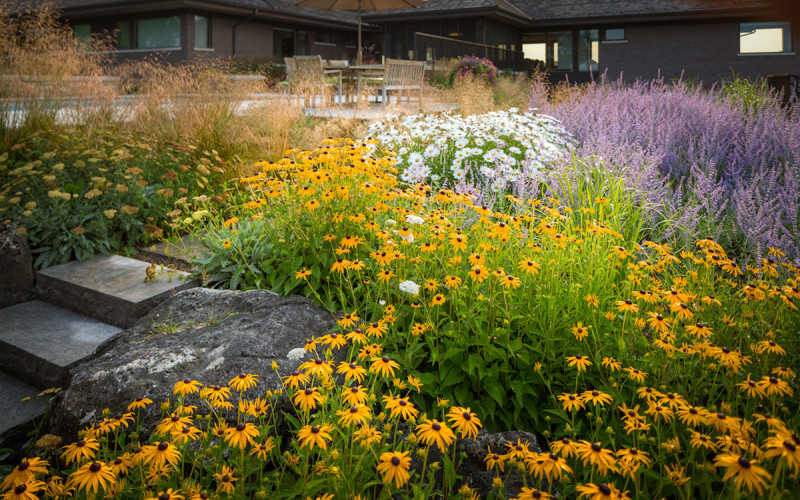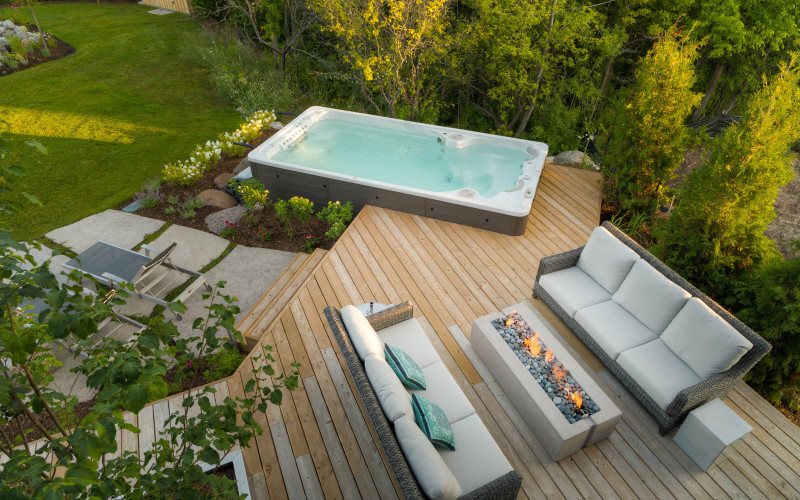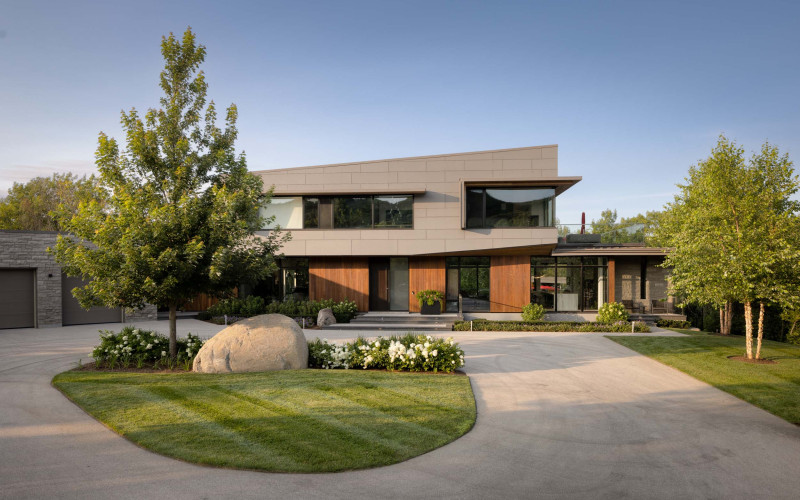Blog
Eight Tips to Keep Your Garden Healthy
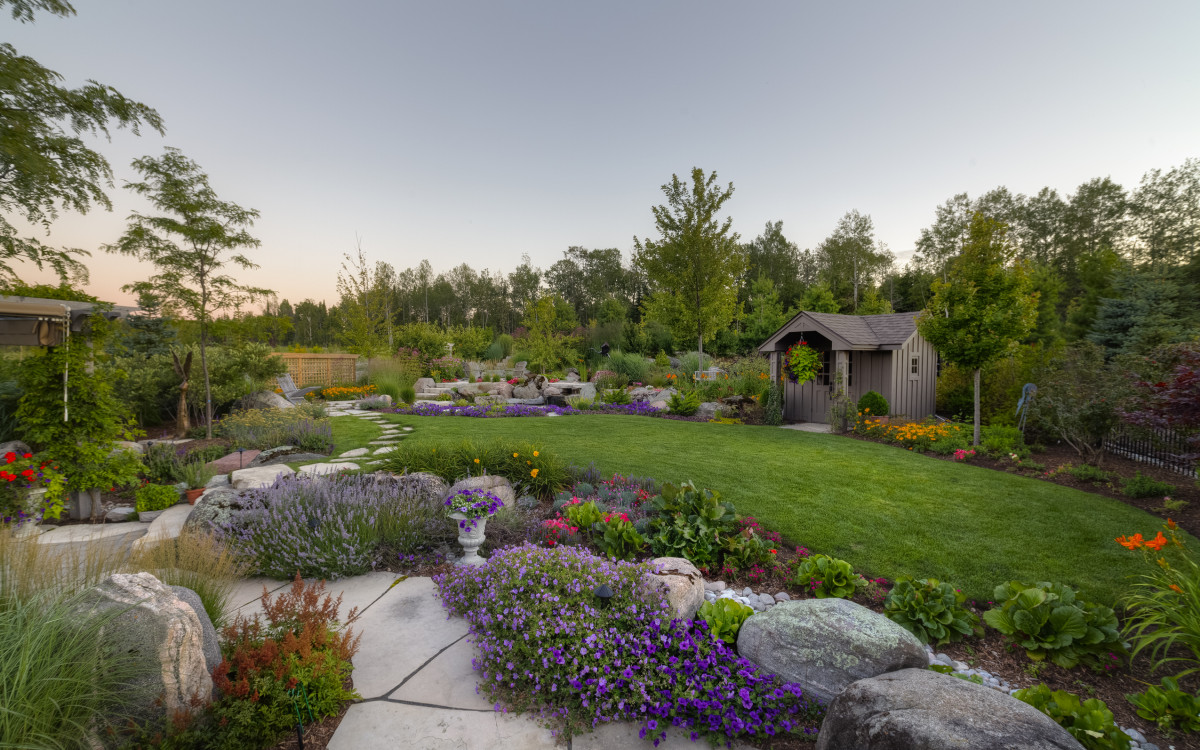
If you’re thinking about grabbing a pair of gloves and heading outside to do a bit of gardening, you’re not alone. Millions of people enjoy working the soil and having their efforts rewarded with healthy plants and flowers bursting with blooms.
But if you’re new to gardening, it can be a bit daunting to just dive in — so before you decide to give up and sit on the patio with a cold one instead (hmmm…that’s actually not a bad idea!) here are a few gardening tips I put together to help you out.
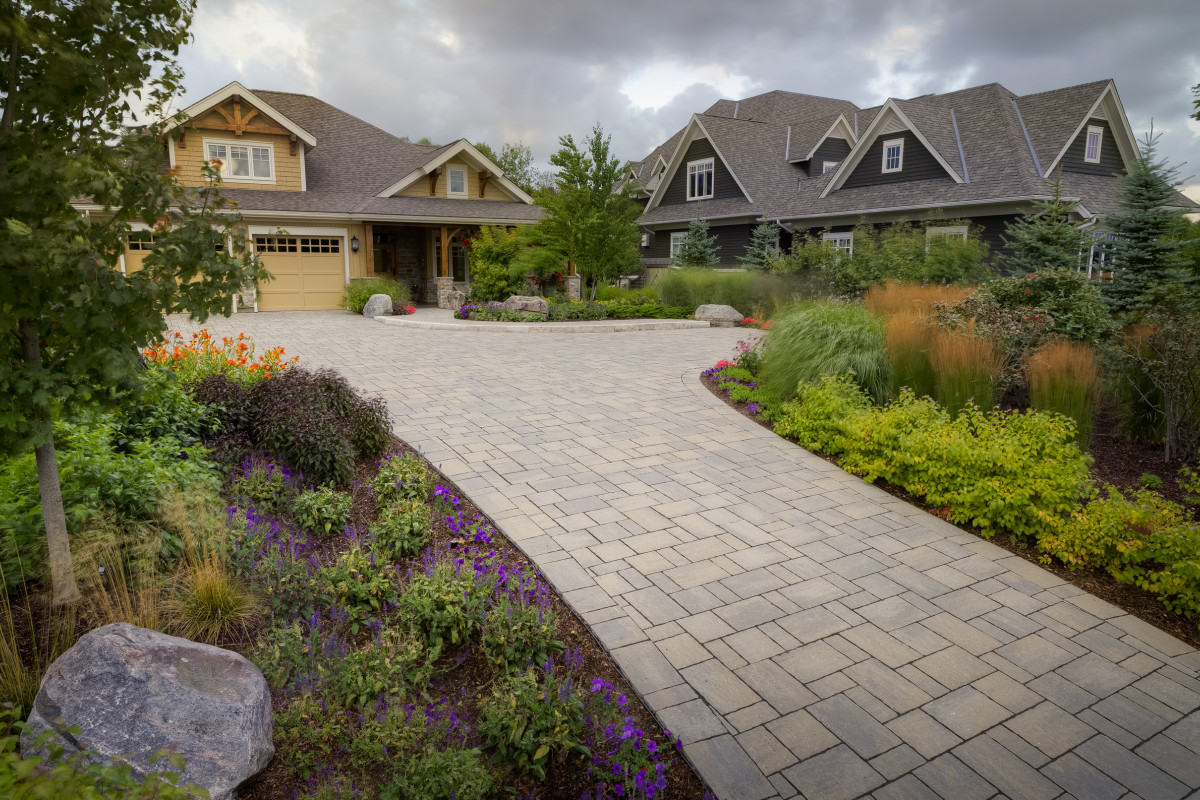
1. Feed your garden soil
Garden soil is full of living organisms so, if you want good-quality soil capable of supporting growth, you need to feed it regularly by adding fertilizer.
All fertilizers are some combination of nitrogen, phosphorus and potassium, and are represented numerically on the bag in that order. Most gardens thrive when the fertilizer contains twice as much phosphorus as nitrogen or potassium (such as 10-20-10 or 12-24-12, for example).
We fertilize our clients’ gardens monthly. This schedule keeps the soil — and the plants — healthy and robust during the entire growing season.
2. Mulch your garden
Mulch is any material that is spread or placed over the soil to cover it, with bark mulch being the most common.
At the Landmark Group, we consider mulch to be an essential part of garden care. It shades the roots, retains moisture, inhibits weed growth and prevents frost heaving in the winter. And as it decomposes over time, organic mulch improves drainage and soil structure.
And the biggest benefit of all is how great it makes your garden look! (If you want it to smell great too, grab a bag of cocoa mulch…)
3. Fill the garden with plants
When planning your garden, place your plants far enough apart to allow for growth, but not so far apart that weeds can move in (if you’re doing a mass planting).
If you’re growing a single bush or specimen plant and you want it to be a focal point, make sure to surround it with a thick layer of mulch to deter weeds.
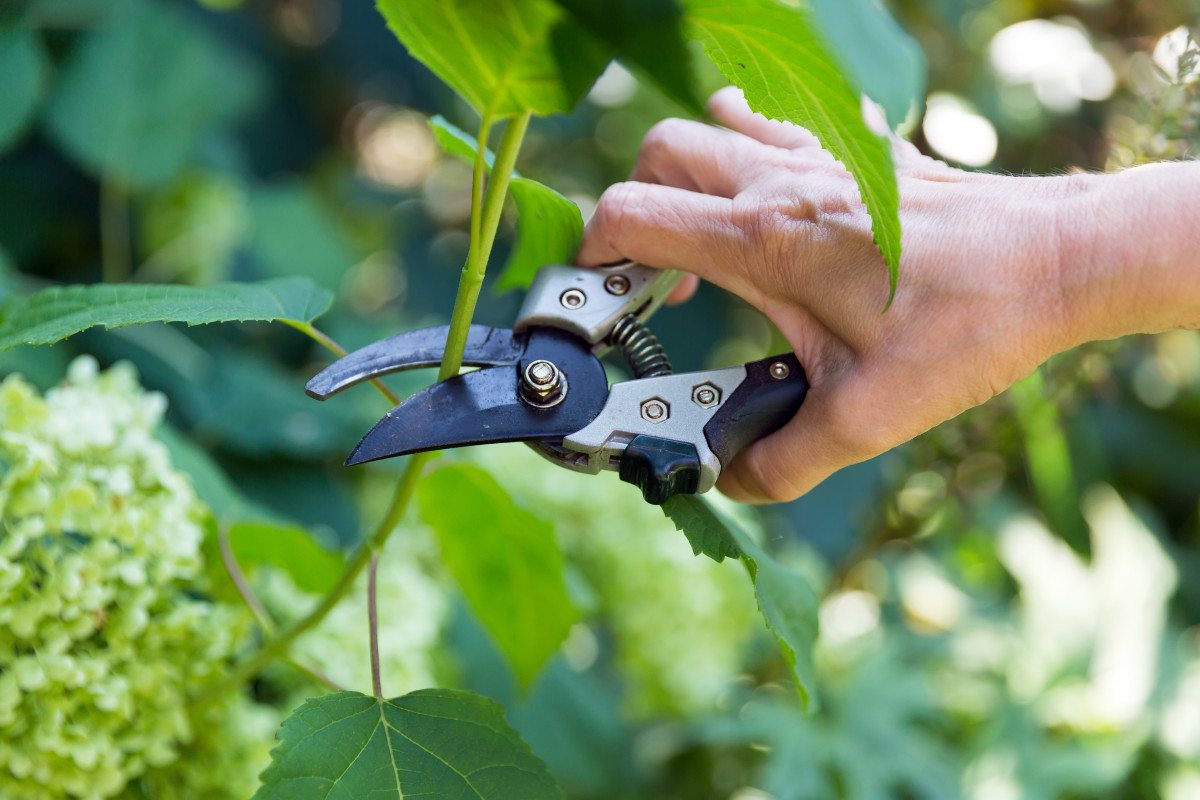
4. Deadhead your perennials
Most perennials need to be deadheaded to remove the dead flowers and should not be allowed to go to seed as they are usually cross-pollinated, which means any seed that germinated would look different than the mother plant.
And because it’s a plant’s mission to seed and reproduce itself, removing spent blooms before they seed means the plant has to start its cycle all over again…so you get more blooms!
Deadheading serves an aesthetic purpose too — plants look much better without dead or dying blossoms clinging to them!
5. Water at the right time
If you don’t have an automatic irrigation system, be sure to water in the early morning so your garden has a chance to dry out during the day, preventing the growth of mildew and fungi.
If you do have an irrigation system and are relying on regular sprinkler heads to do the job, you may want to consider switching to a drip irrigation system for your gardens.
Drip irrigation is buried beneath the mulch, so there is no evaporation, and it drips out slowly so the soil is kept evenly moist. We made the switch for our clients because of how windy it gets up here near Georgian Bay — regular sprinkler heads tossed the water around in the wind, while the drip system lets us place the water exactly where it needs to be.
6. Control those darn weeds!
While the tips above help deter weeds from growing, it’s virtually impossible to prevent the occasional weed from trying to set up shop in your garden.
When we service our clients’ gardens, we use special weeding tools designed to remove them so we don’t harm the “good” plants or groundcover — we don’t use sprays because most will kill your prize roses along with the creeping Charlie.
When we do spray for weeds on walkways and driveways we use a brand-name non-selective herbicidal soap. It’s basically a specially formulated, non-staining, ammoniated soap of fatty acids that does the job effectively but leaves no harmful residue behind in the soil.
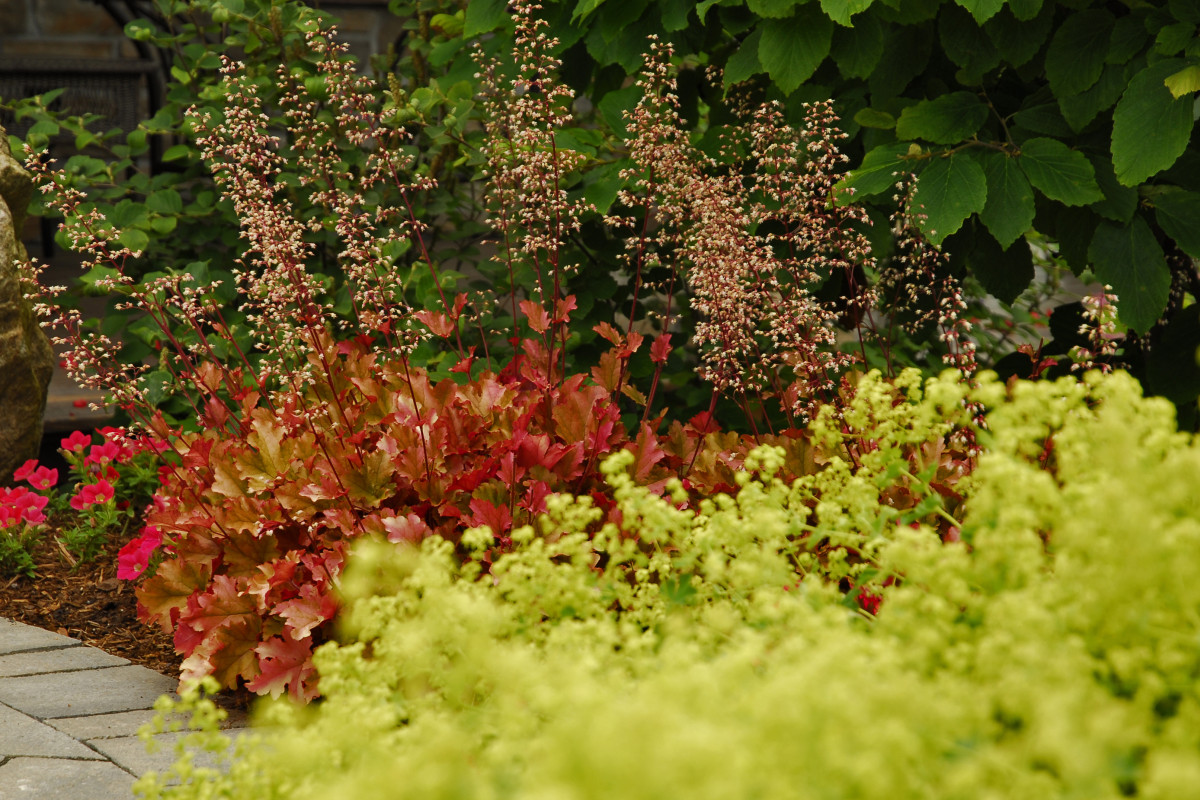
7. Monitor for insects and disease
If you spend a fair amount of time working in your garden, you’ll eventually become accustomed to looking for signs of damage from insects or disease so you can apply treatment before it becomes a huge problem (we do this for our clients during our monthly fertilizer application).
Some things to watch for:
Holes in the foliage mean something has been snacking on your plants!
Wilted leaves could be a sign of poor drainage, dry roots, lack of sun or the presence of a garden pest.
Leaves that change colour could indicate disease or fungus, like black spot, rust or cankers.
You see eggs or larvae on (or under) the leaves.
Some of these pests or diseased areas just need to be plucked by hand and disposed of, but others need more intensive intervention, like applying insecticidal soap. By the way, don’t compost diseased plant material. It could spread if you use the compost in other areas of your garden.
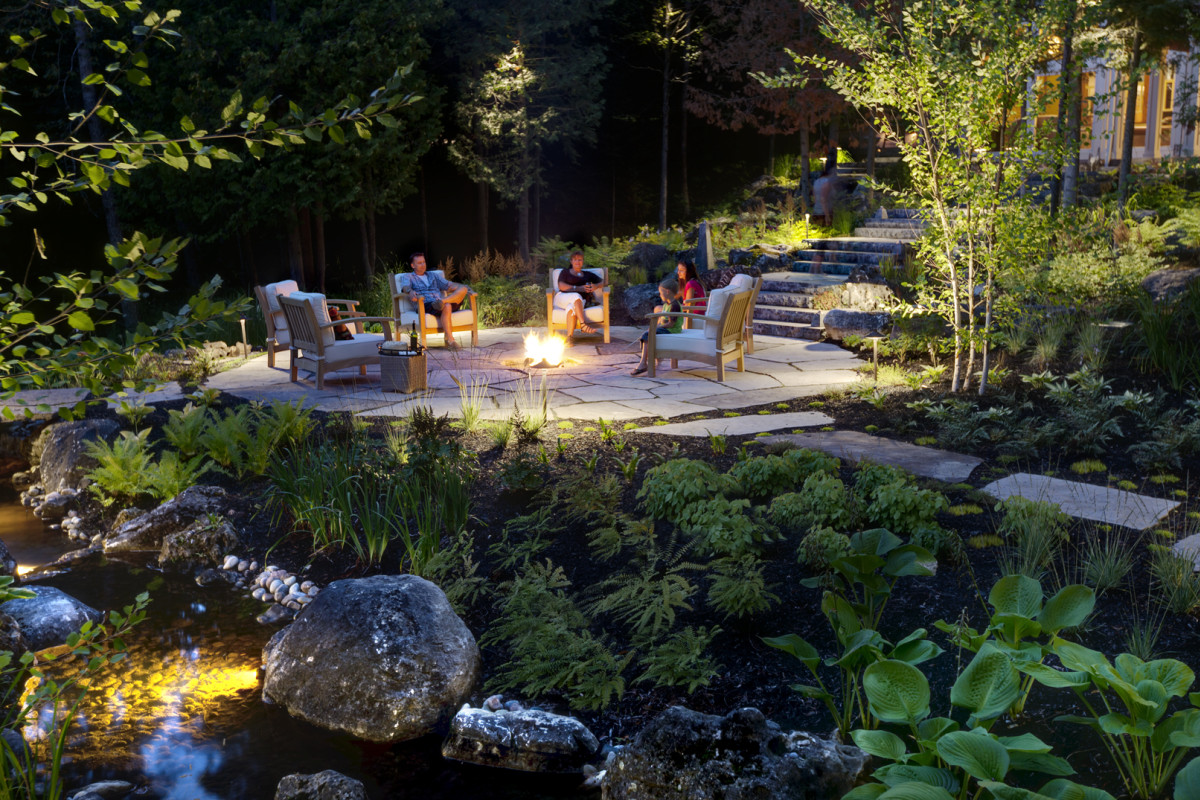
8. Enjoy your garden!
The best tip I can give you is to enjoy your garden!
If that means getting in there and getting dirty, go for it… but if you’d rather look at it from afar, that’s okay too!
At the Landmark Group, we know not everyone has the time or desire to garden, but it’s something we all love to do — and we’re more than happy to take care of your property for you so you can do the things that you love to do!
Getting started is easy… just give us a call or fill out a form and we’ll schedule a consultation.
